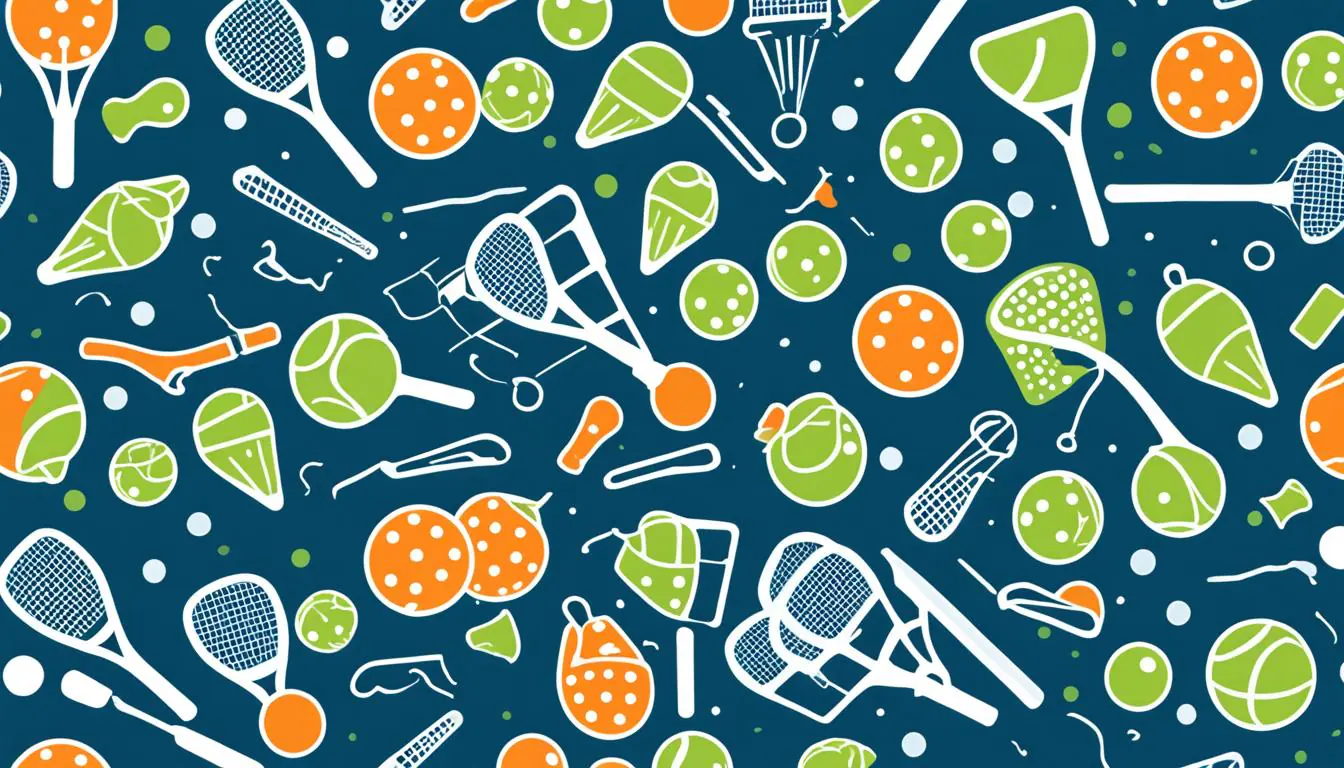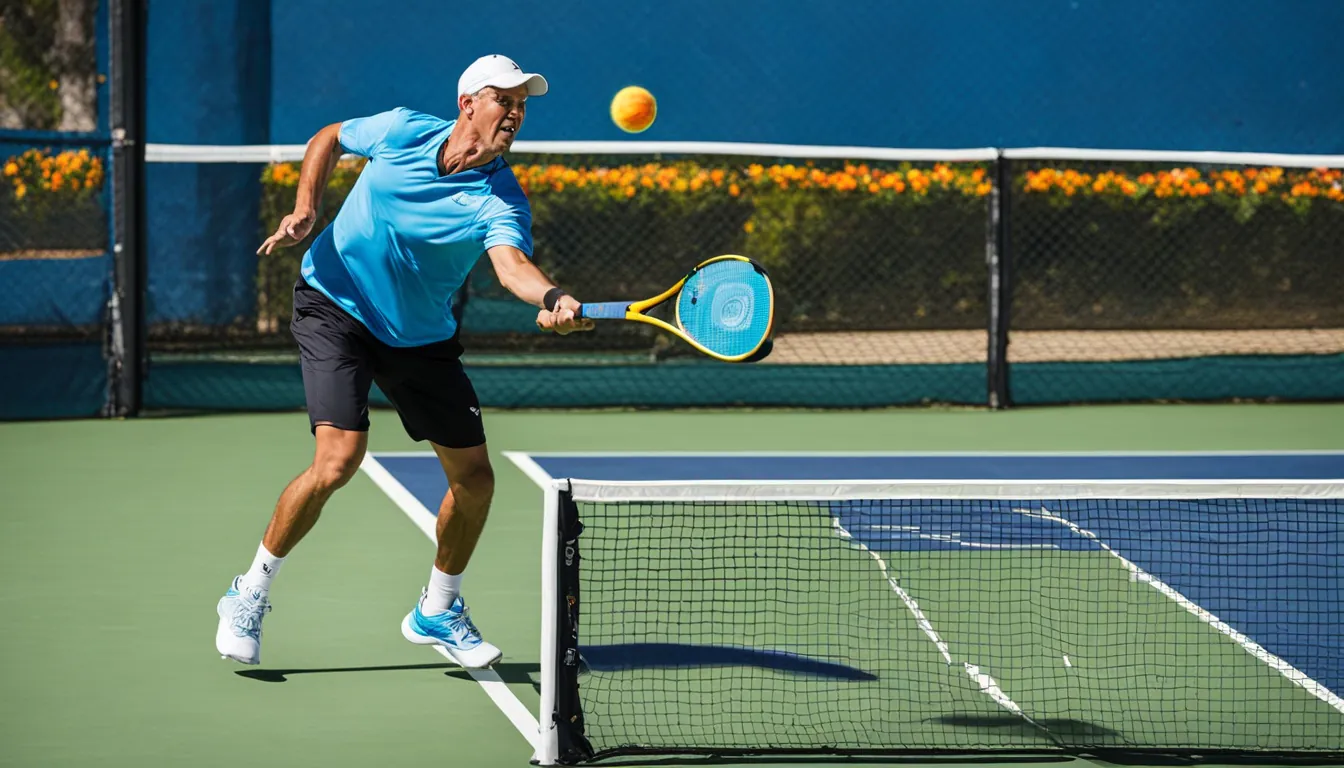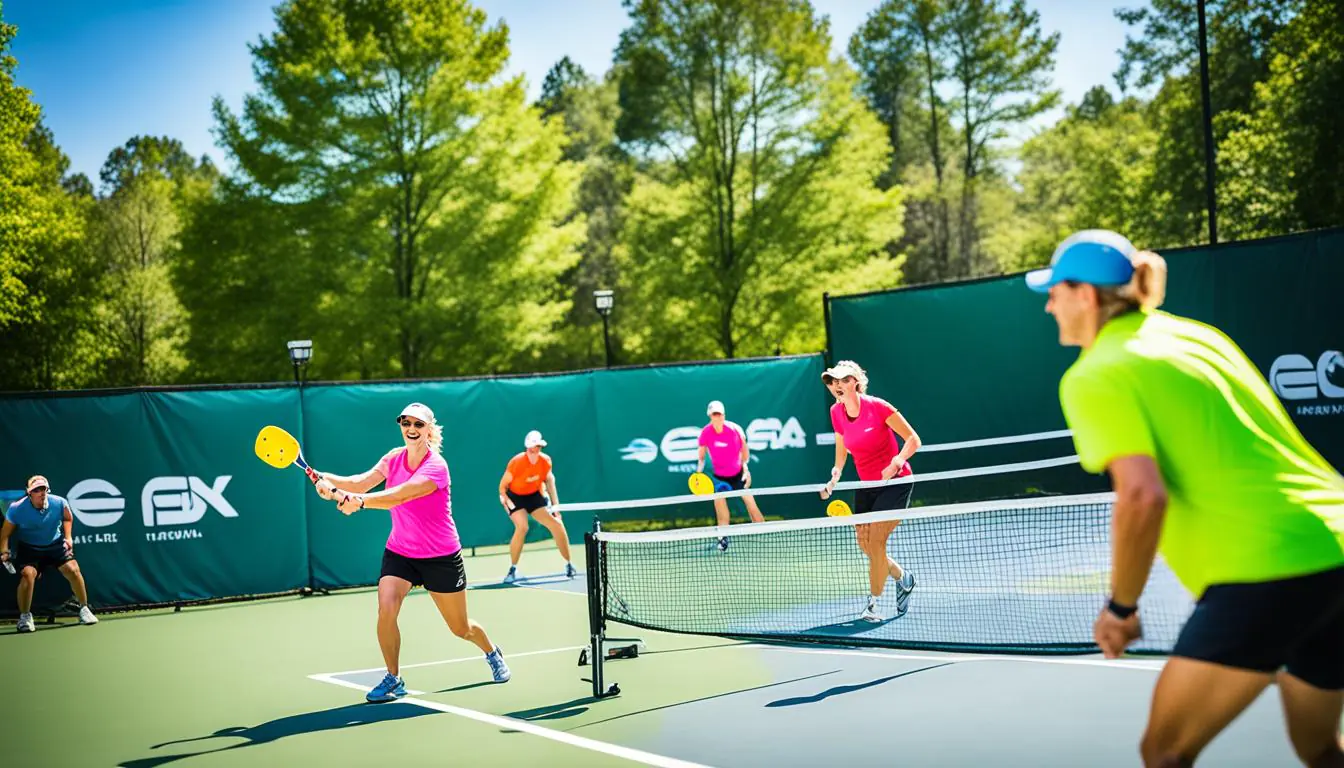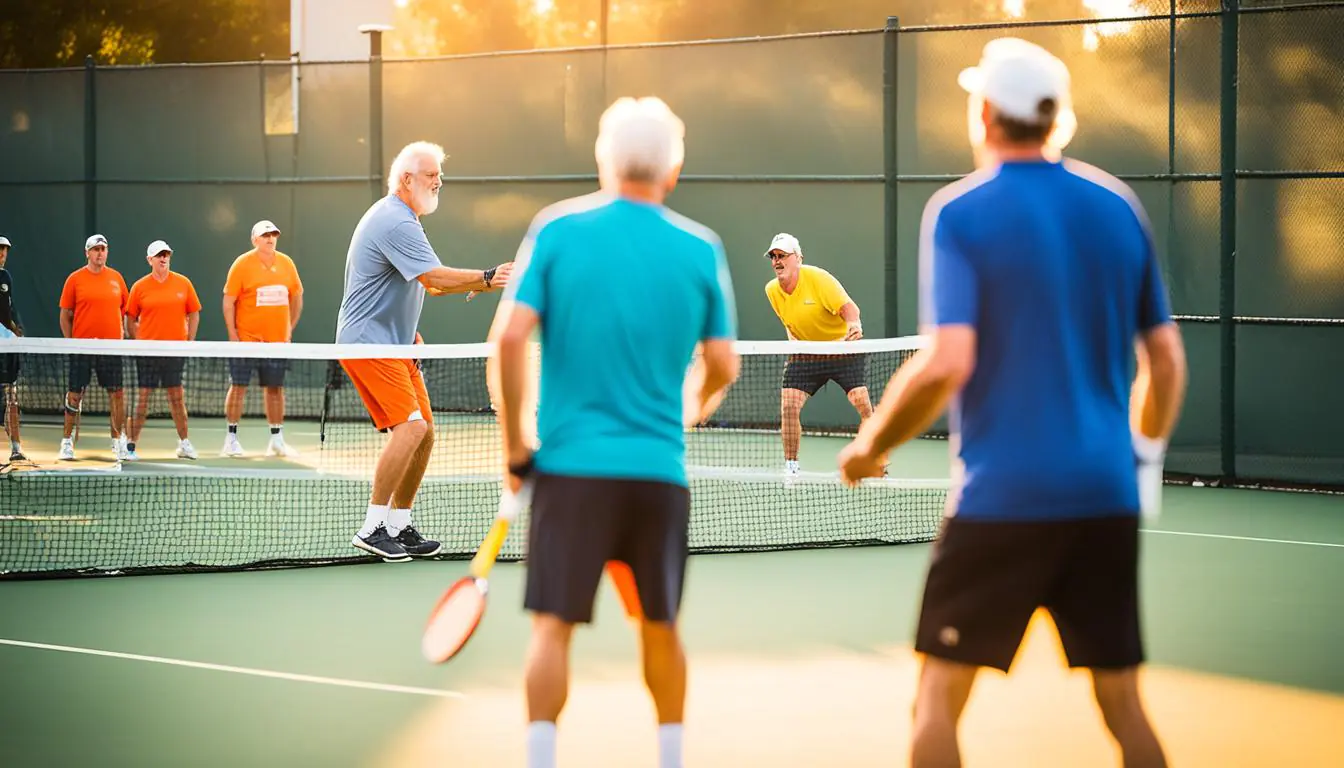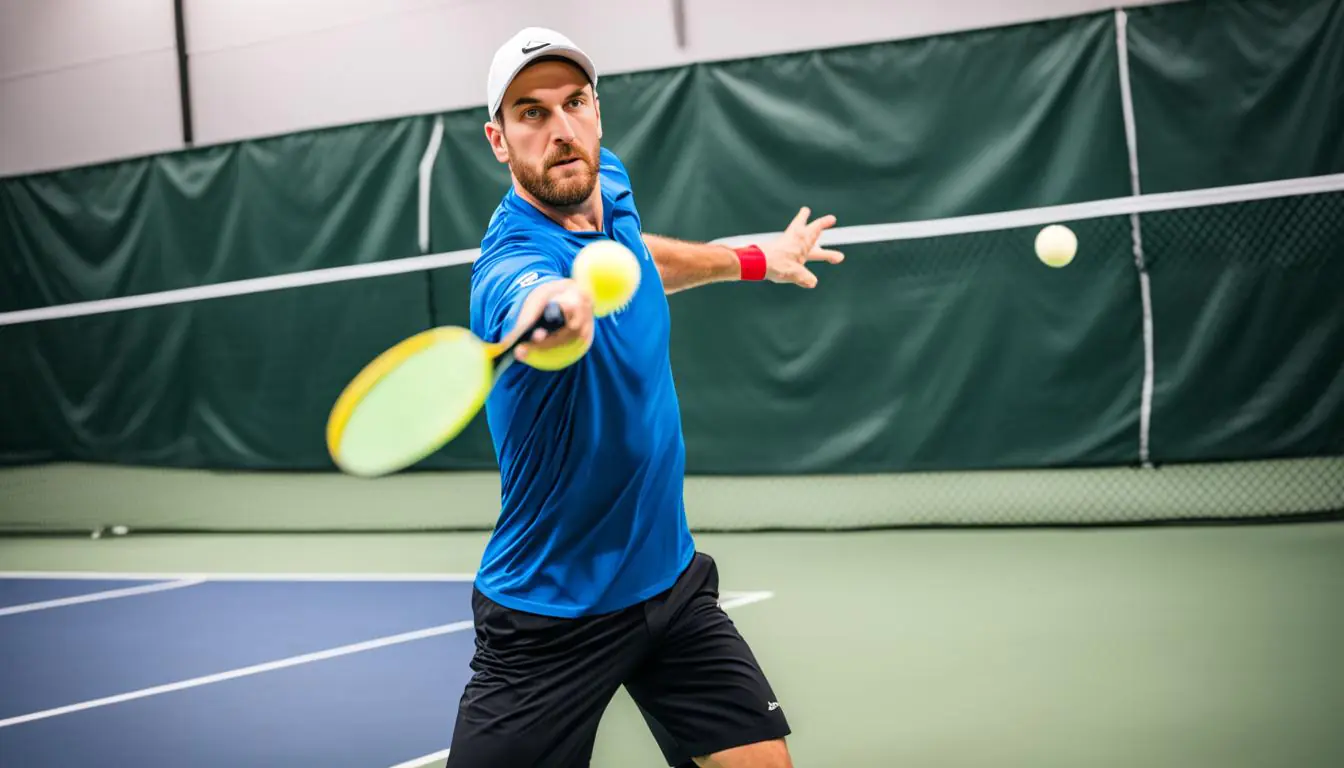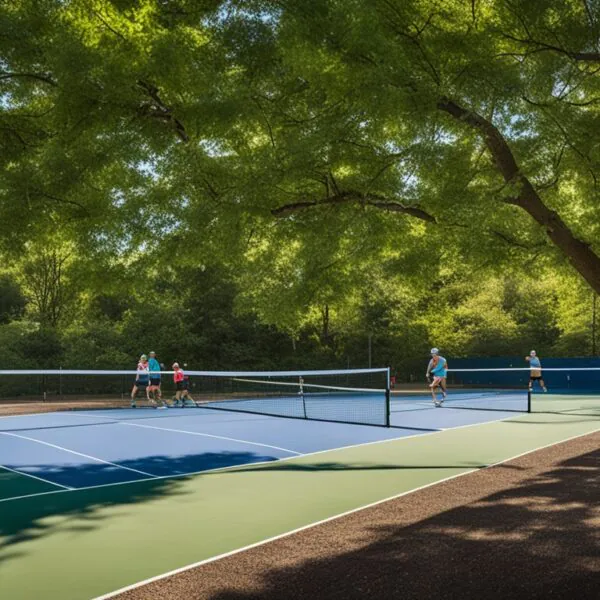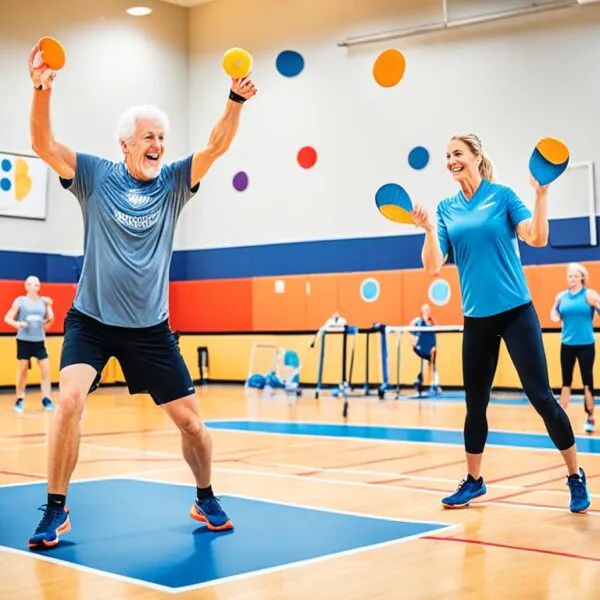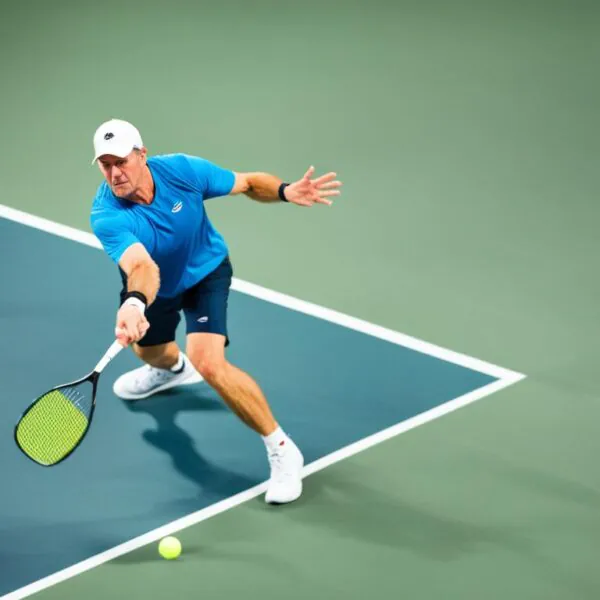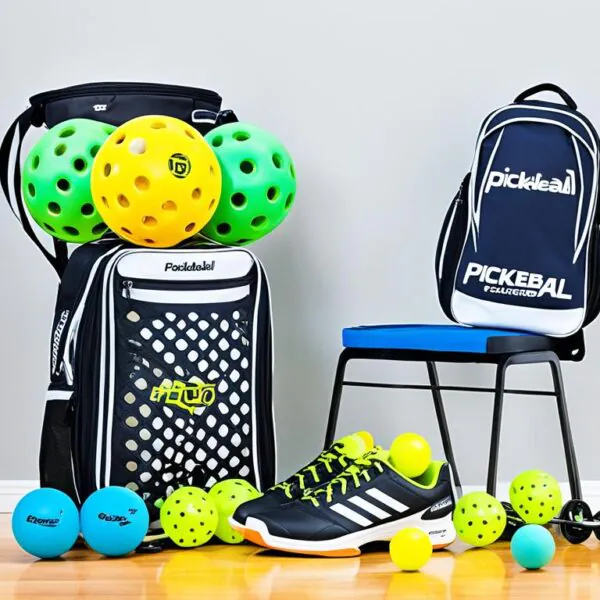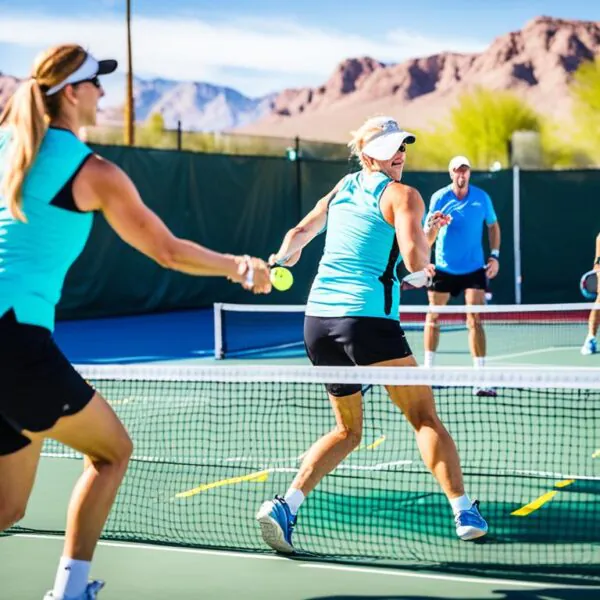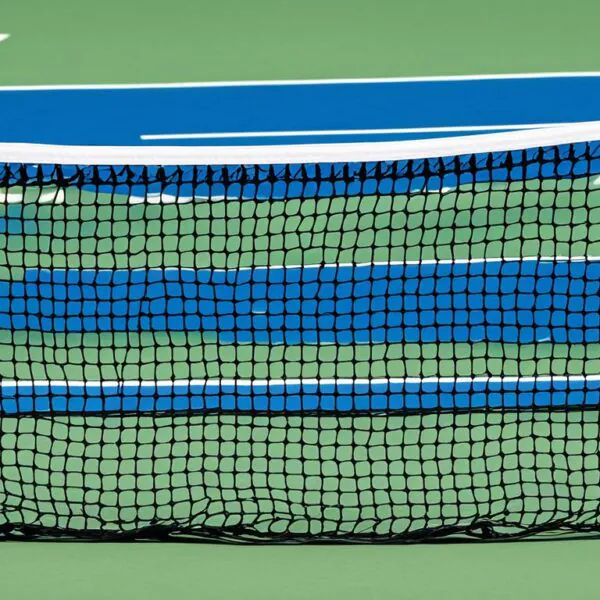Have you ever thought about how one sport can create so many special words? Pickleball is now the fastest-growing sport in the U.S. It’s key to know its unique words. Learning pickleball terms helps you play better and talk with others on the court.
Words like “Ace,” “Dink,” and “Kitchen” are more than just sounds. They are key parts of pickleball strategy and culture. Learning these terms makes playing pickleball more fun and competitive.
Key Takeaways
- Understanding pickleball language is crucial for improving gameplay.
- Key terms include Ace, Dink, and Kitchen, which influence strategy.
- The Double Bounce Rule mandates a bounce on each side before volleys.
- Terms like Drive Shot and Backcourt are fundamental to gameplay.
- Mastering the glossary aids in effective communication among players.
Understanding Pickleball Vocabulary
Pickleball mixes elements from racket sports for fun. It has its own pickleball vocabulary and pickleball terminology. Knowing these words helps me understand the game better. They explain important actions and strategies.
What Makes Pickleball Unique?
Pickleball combines badminton, tennis, and table tennis. This mix makes the game exciting. Knowing common pickleball phrases and pickleball slang helps me see the game’s details. Terms like “double bounce” and “fault” show the game’s strategy and rules.
Key Terms Every Player Should Know
Knowing key terms is important for all players. Here are some vital ones:
| Term | Definition |
|---|---|
| Double Bounce | Each side must make at least one ground-stroke after the serve before volleying. |
| Fault | Any action that stops play, resulting in a point for the opponent. |
| Let | A serve that hits the net but lands in the service court, leading to a replay. |
| Non-Volley Zone (“The Kitchen”) | The area where players cannot volley the ball, highlighting tactical positioning. |
| Overhead Slam / Smash | A hard, aggressive shot aimed downwards at the opponent. |
| Side Out | Declared when one team loses its service; signifies shifting momentum. |
| Dink Shot | A soft shot aimed downward into the kitchen for strategic placement. |
| Poaching | A tactic in doubles where a player intercepts a shot meant for their partner. |
Learning these terms helps me play better and connect with the pickleball community. It makes the game more interesting and fun.
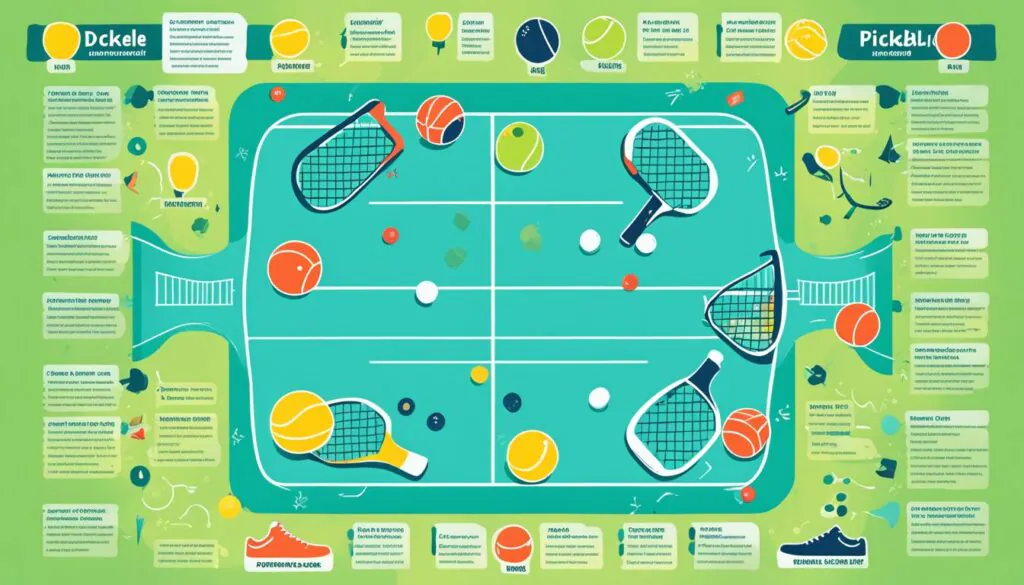
Mastering Pickleball Jargon
Learning pickleball terms helps players play better. Knowing words like “Overhead Smash,” “Flick Shot,” and “Drive” is key. These terms help players use strategies to win.
Players who know how to do an “Around-the-Post” (ATP) shot are very skilled. Using pickleball lingo helps players talk better with their team. This makes the game more fun and successful.
Rules like the “Double Bounce Rule” keep the game fair. Knowing these rules shows how good a player is. Foot faults in the Non-Volley Zone (NVZ) can mess up the game. Following the rules shows you know the game well.
Players are now using smart moves like the “Erne” and “Skinny Singles.” These moves help players win. “Poaching” is another smart move that players use a lot.
Pickleball is getting more popular, with 40% more players since 2022. Now, over 4.8 million people play it worldwide. It’s a fun game for everyone, thanks to its simple rules and unique court size.
Using pickleball terms in practice makes players better. It helps me understand the game more and play better. As I learn more terms, I get better at pickleball.
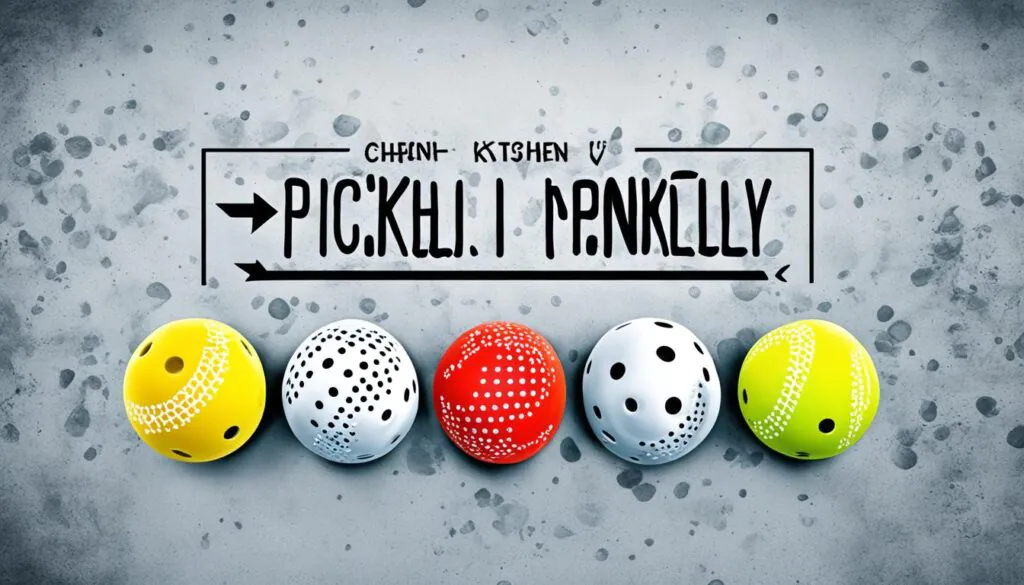
Conclusion
Learning pickleball’s language is key for anyone wanting to get better at the sport. It helps us talk better with other players and play better too. Knowing terms like the “double bounce rule” and “3rd shot drop” makes us better on the court.
Terms like “fault,” “let serve,” and “non-volley zone” are important for playing well. Using these phrases helps me play better. They make me a better player and help me connect with others in pickleball.
Using pickleball’s special words is important for skill and fun. Let’s keep learning new words as we play. This way, we stay sharp and make the game more fun for everyone. Learning pickleball’s terms makes us all better players and friends.
